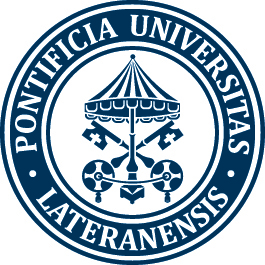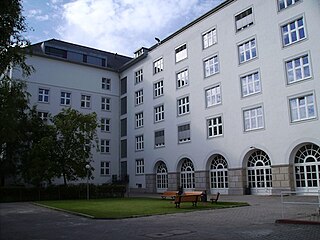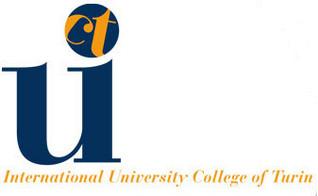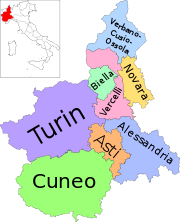
Legal education is the education of individuals in the principles, practices, and theory of law. It may be undertaken for several reasons, including to provide the knowledge and skills necessary for admission to legal practice in a particular jurisdiction, to provide a greater breadth of knowledge to those working in other professions such as politics or business, to provide current lawyers with advanced training or greater specialisation, or to update lawyers on recent developments in the law.

The University of Bologna is a research university in Bologna, Italy. Founded in 1088 by an organised guild of students, it is the oldest university in the world, as well as one of the leading academic institutions in Italy and Europe. It is one of the most prestigious Italian universities, commonly ranking in the first places of national rankings.
Bachelor of Laws is an undergraduate law degree in England and most common law jurisdictions—except the United States and Canada—which allows a person to become a lawyer. It historically served this purpose in North America as well but was phased out in favour of the Juris Doctor degree. Bachelor of Laws is also the name of the law degree awarded by universities in Ghana, Nigeria, Scotland, South Africa, Israel and Zambia.

The University of Turin is a university in the city of Turin in the Piedmont region of north-western Italy. It is one of the oldest universities in Europe, and continues to play an important role in research and training. It is steadily ranked among the top 5 Italian universities and it is ranked third for research activities in Italy, according to the latest data by ANVUR.
A Master of Laws is a postgraduate academic degree, pursued by those either holding an undergraduate academic law degree, a professional law degree, or an undergraduate degree in a related subject. In some jurisdictions the "Master of Laws" is the basic professional degree for admission into legal practice.
A law degree is an academic degree conferred for studies in law. Such degrees are generally preparation for legal careers; but while their curricula may be reviewed by legal authority, they do not themselves confer a license. A legal license is granted and exercised locally; while the law degree can have local, international, and world-wide aspects- e.g., in Britain the Legal Practice Course is required to become a British solicitor or the Bar Professional Training Course (BPTC) to become a barrister.

The University of Pavia is a university located in Pavia, Lombardy, Italy. There was evidence of teaching as early as 1361, making it one of the oldest universities in the world. It was the sole university in Milan and the greater Lombardy region until the end of the 19th century.

Roma Tre University is an Italian public research university located in Rome, Italy, with its main campus situated in the Ostiense quarter.
School of Law at Trinity College Dublin is the oldest established law school in Ireland. It teaches law to undergraduate and postgraduate students, as well as conducting legal research and holding conferences.
Florida State University College of Law is the law school of Florida State University located in Tallahassee, Florida.
In Italy, the Iaurea is the main post-secondary academic degree. The name originally referred literally to the laurel wreath, since ancient times a sign of honor and now often worn by Italian students right after their official graduation ceremony and sometimes during the graduation party. A graduate is known as a laureato, literally "crowned with laurel."

The European University Institute (EUI) is an international postgraduate and post-doctoral teaching and research institute established by European Union member states to contribute to cultural and scientific development in the social sciences, in a European perspective. It is located in the small city of Fiesole, a suburb of Florence, Italy.

The University of Gastronomic Sciences (UNISG) is an international academic institution in northern Italy. The campus is in Pollenzo, near Bra, a city in the north-west region of Piedmont. Carlo Petrini, founder of the Slow Food Movement, established the school as the first university to focus on the organic relationships between food and cultures. More than 1,500 students have taken courses at UNISG since it opened in 2004.

The Institute of Advanced Legal Studies (IALS) is a member institute of the School of Advanced Study, University of London. Founded in 1947, it is a national academic centre of excellence, serving the legal community and universities across the United Kingdom and the world through legal scholarship, facilities, and its comparative law library.

The Pontifical Lateran University, also sometimes referred to as the Pontifical University of Apollinaire, is a university by pontifical right based in Rome. The university also hosts the central session of the Pontifical John Paul II Institute for Studies on Marriage and Family. The university is known as "The Pope's University". Its Grand Chancellor is the Vicar General to the Holy Father for the Diocese of Rome. Four of its graduates have been canonized. As of 2014 the Pontifical Lateran university had students from more than a hundred countries.

The Berlin School of Economics and Law is a public institution of higher education and research founded on 1 April 2009 through the merger of the Berlin School of Economics (BSE) and the FHVR Berlin. The BSEL portfolio provides a wide range of Bachelor's and Master's programmes in fields such as business, administration for the public and private sector, public security, law, or engineering. BSEL has an international approach with close working relationships to over 150 partner universities all over the world.

The International University College of Turin, or IUC Turin, is an independent University founded in 2006 with a grant from the Compagnia di San Paolo and Consiglio Nazionale del Notariato. Teaching at IUC focuses on the interdisciplinary and critical study of law, economics and finance. The IUC is located in the center of the city of Turin, Italy. The Founding President of IUC is Franzo Grande Stevens. Stefano Rodotà served as President until 2014. The current President is Edoardo Reviglio.

The Riga Graduate School of Law (RGSL) in Riga, Latvia is a autonomous law school in Baltic region offering Bachelor, Masters and Doctoral studies. It was established in 1998 through an international agreement between the Governments of Sweden and Latvia and the Soros Foundation.
MJur is an academic degree in law awarded by some universities.
The SOAS School of Law is a very reputed and prestigious law school of the, University of London. It is based in Paul Webley wing of the Senate House in Bloomsbury, London, United Kingdom. The SOAS School of Law is the sole law school in the world dedicated to the study of legal systems in Asia, Africa and the Middle East.

















